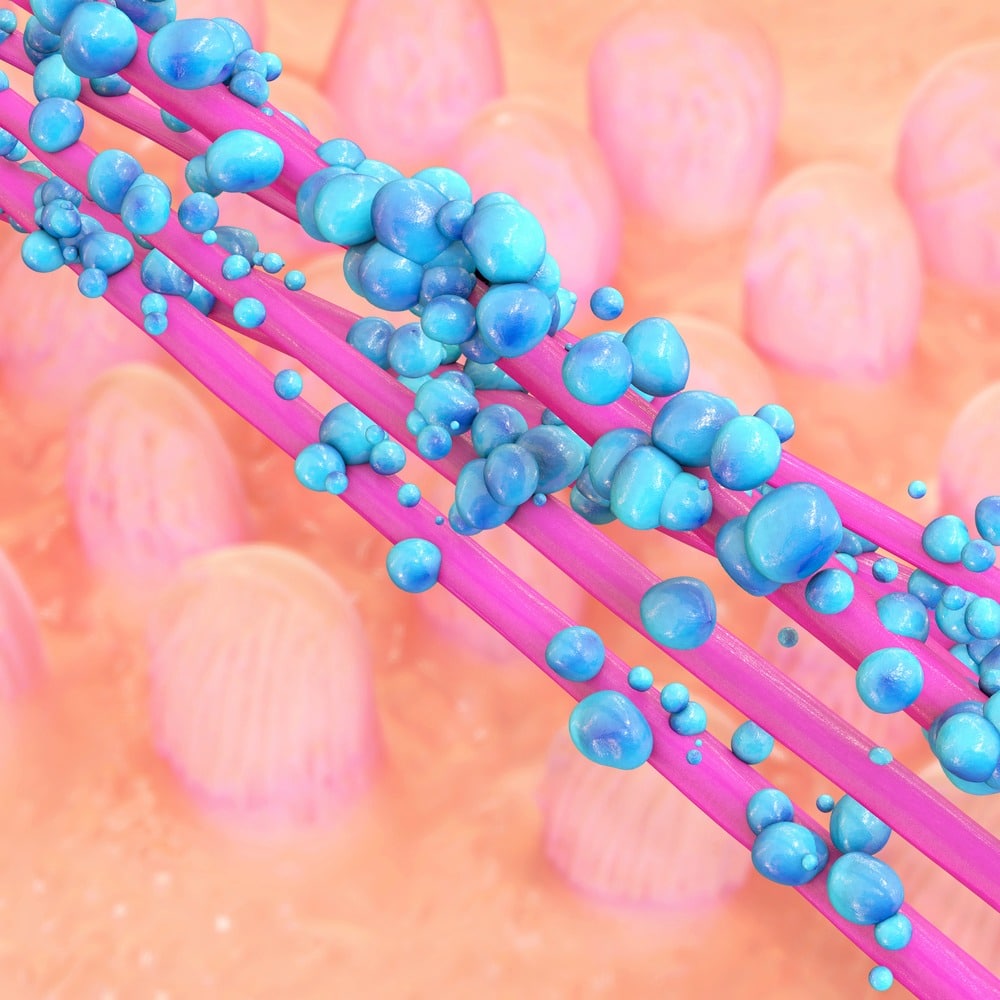Akkermansia muciniphila has been identified by a study to have more than one way to nurture its growth in the gut, and has offered evidence it may maintain and/or restore health with age. In mice and donkeys with aged metabolisms, taking the steps to promote A. muciniphila reduced the animal’s resistance to insulin.
Insulin resistance is linked to type 2 diabetes and a variety of conditions ranging from obesity and inflammation, to sagging immunity and frailty. If a way to slow or reverse insulin resistance could be found it may have broad anti-aging effects to many of these conditions.
Akkermansia muciniphila inhabits the large intestine and is believed to represent about 1-5% of adult intestinal bacteria, it is also suspected to help preserve the coat of mucus that lines the intestine walls. A. muciniphila may play a role in making polyphenols ingested from plant based foods more available to our cells. There is mounting evidence that Akkermansia is involved in obesity, glucose metabolism, and intestinal immunity.
A cancer study suggests that it plays roles in immune response, patients with higher levels of Akkermansia in their guts were observed to be helped more by a new generation of immunotherapy. When stool was take from a patient who responded well to the therapy and transplanted into model animals with human cancers the recipients became more likely to respond positively to the same treatment.
The National Institute on Aging examined molecular chain of events that results from Akkermansia depletion in mice and macaque monkeys assessed the effects of restoring this gut microbe to elderly animals. Guts of older animals has significantly smaller populations, as it became more scarce so did butyrate; deficiency in both of these caused mucous walls of the intestines to thin and grow leaky with the corrosive process causing a chain of events that touched off inflammation, prompting immune responses and increased insulin resistance. Accumulation of 4BL immune cells was surmised to probable have been stopped if the detrimental chain of events were to be disrupted.
The team noted that Akkermansia appeared to have a role in fostering healthy diversity among the microbes the colonize the gut. When levels of A. muciniphila were low beneficial byproducts such as butyrate also suffered. Giving aged mice butyrate resulted in higher A. muciniphila levels as well as levels of insulin resistance approaching those seen in younger animals. The same results were observed when aged mice and macaque monkey were given enrofloxacin, in both animals the 4BL cells thought to be key links leading to insulin resistance were wiped out which promoted levels of Akkermansia to rise and insulin resistance largely disappeared.
Results suggest that insulin resistance and pathologies associated with aging including frailty may be ameliorated by targeting the chain of events that occur after the depletion of Akkermansia muciniphila. Findings are in line with and study investigating probiotic forms that may increase presence in the human gut and impact on insulin sensitivity.
A small study has just concluded in humans which investigated safety and feasibility of taking Akkermansia in a form that will boost populations within the gut which had encouraging results.




